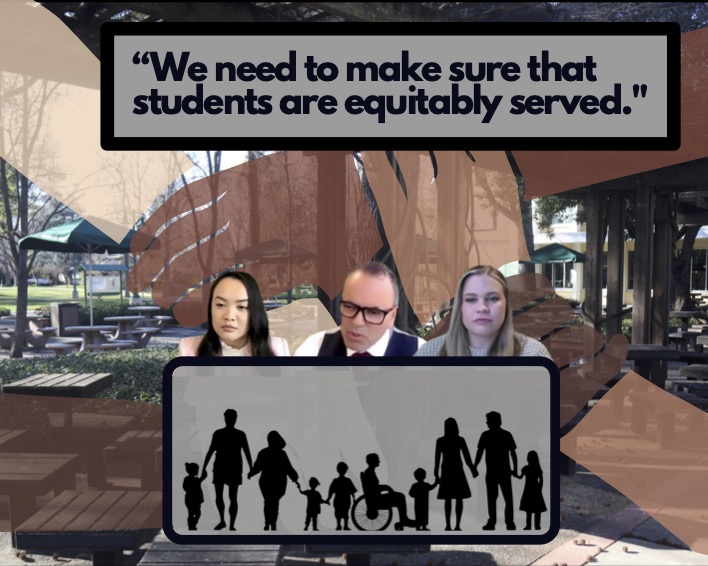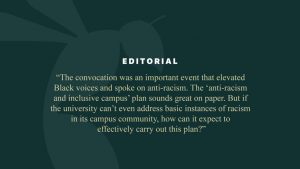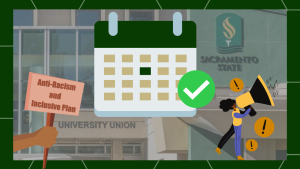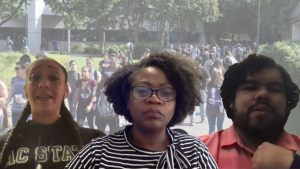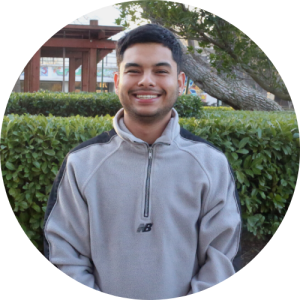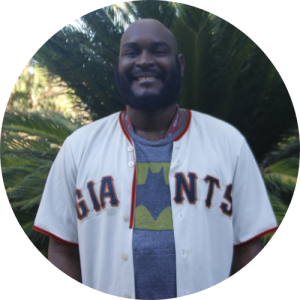Sac State’s 2022 convocation discussed turning a plan on paper into action
Speakers outlined the proposed implementation of an anti-racism and inclusion plan
From left to right, Dr. Khanh Dinh, Dr. Carlos Nevarez and Dr. Cassie Donnelly served as the panelists at the Anti-racism and Inclusion Convocation on Feb. 14. They spoke about integrating the inclusivity plan into the campus community. Photo by Kris Hall, graphic made in Canva by Tony Rodriguez.
February 16, 2022
After a five-month delay, Sacramento State held the Anti-racism and Inclusion Convocation on Monday following several recent instances of racism on campus.
Sac State announced the proposed rollout for implementation of the 324-page anti-racism and inclusive campus plan via Zoom.
The event, which was previously announced in fall 2021, and then rescheduled to September before getting delayed a second time, was themed “A call to action: Eradicate, Resolve, and Liberate.”
Panelists during the convocation made an effort to elaborate on how the campus community can move away from performative action.
A land acknowledgment by Dr. Rose Soza War Soldier kicked off the virtual event, followed by a panel discussion and a keynote speaker before being broken into separate groups.
On the “Panel: Paying Homage,” Education assistant professor Dr. Alma Flores said doing the work of moving towards an anti-racist campus starts internally.
“It’s a willingness to sacrifice power,” Flores said.
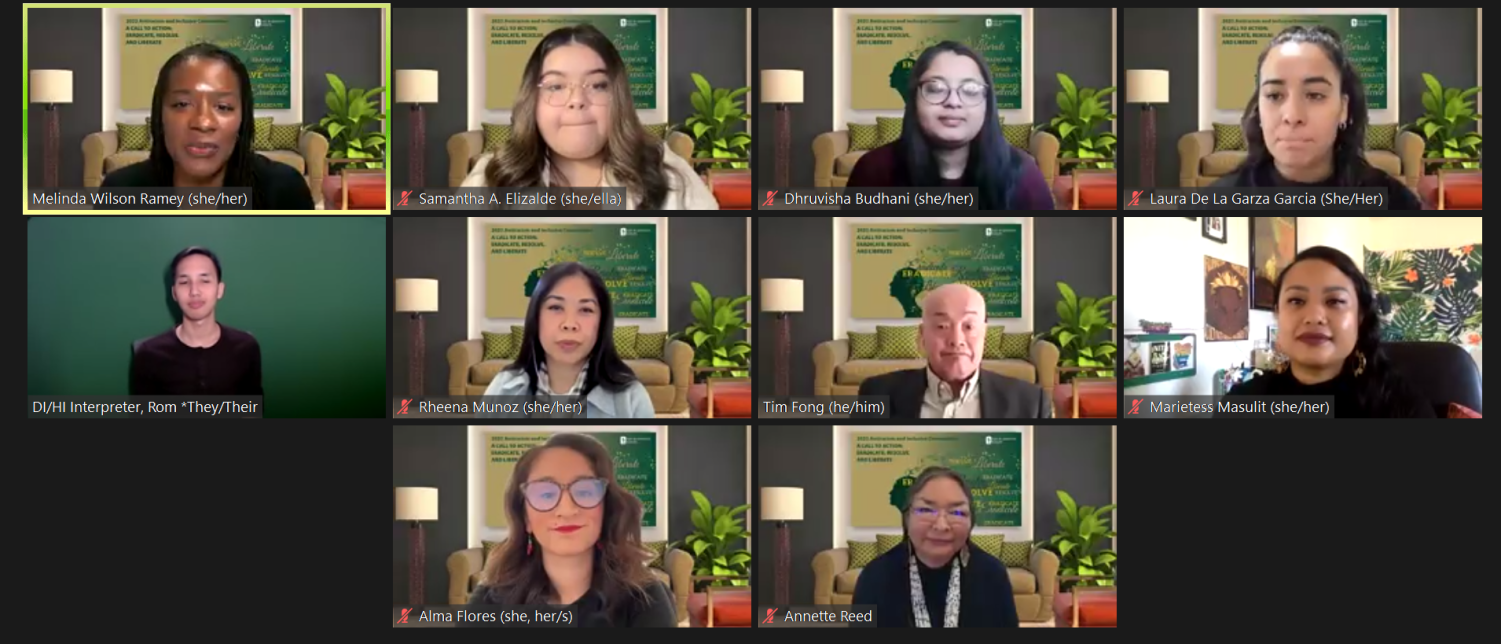
Award-winning author and The Athletic Association Endowed Professor at the University of Georgia, Dr. Bettina Love, was the Convocation keynote speaker.
According to Dr. Love, anti-racism on campus and in our communities starts with everyone. She said that communities have to tear down and build something, and that things need to be less performative and transparent.
“You have to look at policy,” Dr. Love said. “They create policies to perpetuate their privilege. We have to institute policies that take race into account. It has to be a commitment.”
Love said Sac State needs an action committee to change the culture of the campus.
“The work is in the community and the culture you create,” Love said.
For an anti-racism plan to work, the action needs to be very intentional, according to College to Career Pathways Coordinator Marietess Masulit, who was a guest speaker at the event. Masulit said she thought the written plan was long and easy to get lost in.
“I think folks just want to see action,” said Masulit.
According to Mia Settles-Tidwell, vice president of the Division of Inclusive Excellence, the first step in turning this plan into action is to read the document by March.
“Step two is recognizing your positionality,” Settles-Tidwell said. “And how you’re going to use that positionality to move this plan forward.”
She said if this gets done, Sac State could become a fully anti-racist and inclusive campus.
Sac State is starting a caught-in-the-act of being anti-racist and inclusive, according to her.
“We’re gonna have different people out there nominating folks who are currently doing the work,” said Settles-Tidwell. “So we want to elevate those who are already putting their efforts towards changing opportunities and changing outcomes.”
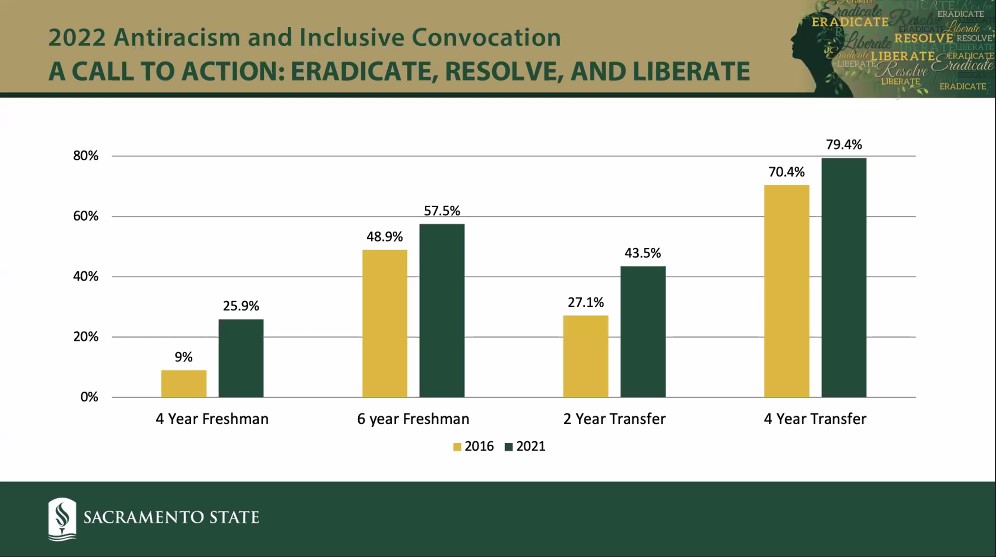
Dr. Carlos Nevarez, interim provost and vice president of Academic Affairs, said he expects pushback for the policies that the convocation leads to, but, right now, the policies are in what he called the “honeymoon stage.”
“All this gives you a sense of control of the process,” said Dr. Nevarez. “It provides you with all the pieces of the puzzle that let you see the whole picture,”
Dr. Nevarez talked about the benefits of predictability in leading change. He said that a concrete plan will help, but it needs to be acted upon to be effective.
Dr. Cassie Donnelly, Ed. D. in Educational Leadership, said the plan needs to benefit students; she cited statistics to show that underrepresented groups have the lowest graduation rates at Sac State.
White students graduate in four years at a rate of 29.5%, compared to 19.8% for Black students, according to statistics shown by Dr. Cassie Donnelly. She said these statistics are higher than usual on our campus, which should be alarming.
“We need to make sure that students are equitably served,” Dr. Donnelly said. She talked about the process of providing for every student on an individual basis, according to what every single student might need, rather than a “one size fits all” approach.
A breakout room titled “Liberation in Praxis: Whiteness, Accountability, & Shifting from Ally to Co-Conspirators” featured key speaker Varja Watson, professor of educational leadership and racial justice.
“Developing an anti-racist culture will not occur in a single workshop,” Watson said. “The work is intergenerational, both reckoning and reclaiming.”
“Liberation in Praxis: Respect the Process, Examining our Social Justice Perspectives” was a breakout session led by Dr. Love, which started by introducing the audience to the “drawbridge exercise” to help explain individual and societal biases towards social justice situations.
The exercise presents a story of a baron warning his wife not to leave the castle under threat of death. She eventually leaves, despite his orders, and cheats on her husband, leading to her own execution. .
Dr. Love asked for audience responses on who they thought was most responsible for the Baroness’ death. She said the exercise was intended to show how people’s upbringing and inherent biases can alter their perspectives towards a specific issue.
“We are programmed to judge situations from our blind spots,” Dr. Love said. “There is nothing wrong with that programming, but in order to do the work of social justice, we have to reprogram ourselves, and this is tough.”
Additional reporting by Kris Hall, Michael Pacheco, Zachary Cimaglio, Hannah Asuncion Dominique Williams, Alexis Hunt.






























































































































